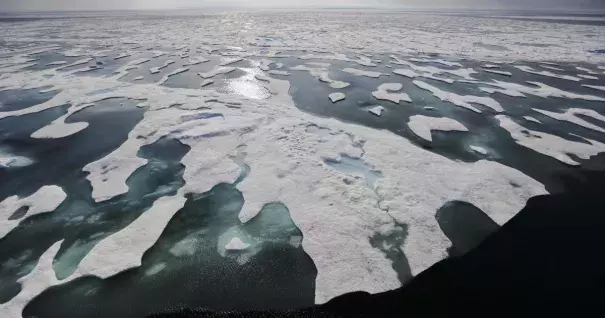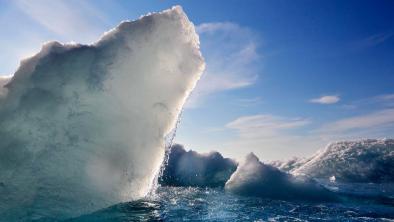The Arctic is warming faster than at any point in the past 1,500 years

The Arctic is warming faster than at any point in the past 1,500 years, according to a federal government report released Tuesday. The report, led by scientists at the National Oceanic and Atmospheric Administration, also found that maximum winter sea ice coverage in the Arctic was the smallest ever recorded.
The peer-reviewed annual report card, presented at the American Geophysical Union fall meeting, compiled the work of 85 scientists from 12 nations.
“The Arctic is going through the most unprecedented transition in human history,” said Jeremy Mathis, director of NOAA’s Arctic Research Program, during a press conference.
In 2017, maximum winter sea ice area, measured each March, was the lowest ever observed. Permafrost, the layer of soil that remains frozen in the Arctic, also thawed faster than ever before.
A section of the report based on geological records found that sea ice is now declining, and temperatures warming, at a faster rate than at any other time in the last 1,500 years.
2017 was the second warmest year in the Arctic since 1900, when instrumental recordkeeping began. The all-time record was set last year. While fewer records were shattered this year than in 2016, the Arctic shows no sign of returning to the reliably frozen region it was decades ago, the report says.
Related Content



